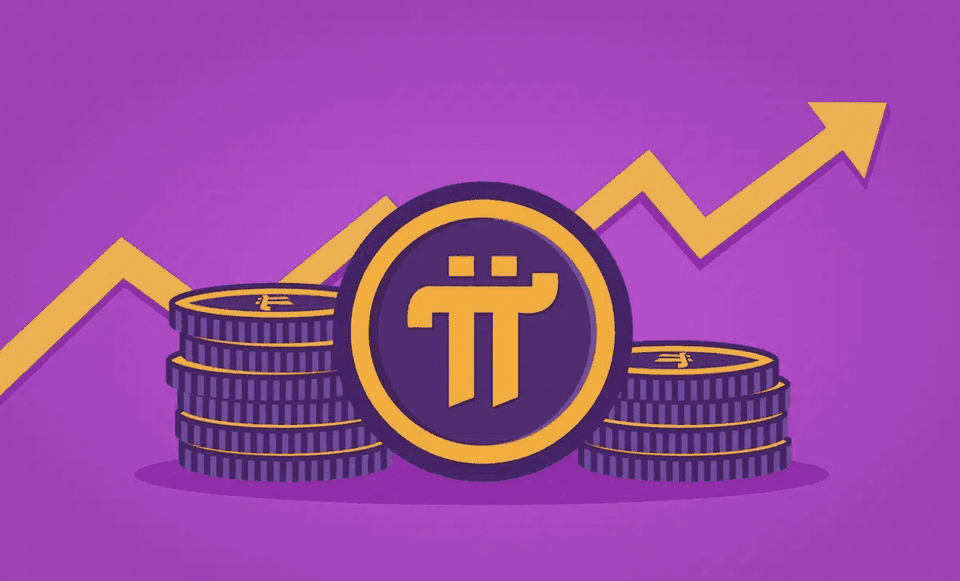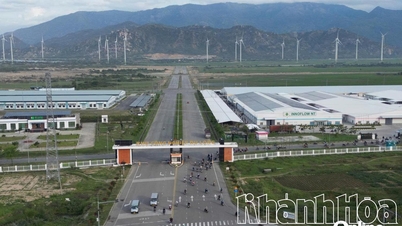 |
Pi Coin suddenly recovers. Photo: Binance . |
Pi’s price has seen a slight increase over the past 24 hours amid a large withdrawal of tokens from exchanges and the project announcing progress in its KYC system. This development has helped the cryptocurrency, which gained attention for its mobile mining model, regain some trust from the community.
According to data from BeInCrypto Markets , Pi is up about 0.91% on the day, currently trading around $0.20 . While this is a modest increase, the trend suggests that selling pressure has eased after a long period of market pessimism for the coin.
Data from the PiScan tracking platform shows that in October alone, users withdrew nearly 10 million Pi tokens from exchanges. In the last 24 hours alone, more than 2.6 million tokens left exchange wallets. The total amount of Pi circulating on exchanges is now down to about 410 million, down from 420 million in September. The large amount of tokens leaving exchanges is a signal reflecting a long-term hoarding trend.
After several delays and user feedback, the development team has implemented an automated KYC process to speed up the review process and reduce errors in account verification. According to the official announcement, the new system has helped verify more than 3.36 million Pioneer accounts, of which about 2.69 million accounts have been transferred to the Pi Mainnet blockchain. In addition, about 4.76 million other accounts are eligible to complete verification in the near future.
However, analysts warn that risks remain as more than 121 million tokens are expected to be unlocked in the next 30 days. This additional supply could put pressure on prices, especially in a context where the cryptocurrency market has yet to recover clearly.
According to data from blockchain tracking platform PiScan, Vietnam currently has 163 Pi Network nodes, accounting for nearly 49% of the total 334 global processing points. Most of these nodes are located in the North with 75 machines, followed by the South with 54 and the Central region with 34.
The number of nodes in Vietnam far exceeds many regions with large Pi mining communities such as China, India, South Korea or Europe. This shows a strong level of participation from domestic users, but raises concerns about the concentration of control by geographic area.
Currently, Pi Network only has 2 transaction validators globally, both managed by the development team, making the decentralization of the network continue to be questioned.
Source: https://znews.vn/ly-do-dong-pi-tang-gia-post1598104.html




![[Photo] Hue: Inside the kitchen that donates thousands of meals a day to people in flooded areas](https://vphoto.vietnam.vn/thumb/1200x675/vietnam/resource/IMAGE/2025/10/29/1761738508516_bepcomhue-jpg.webp)

![[Photo] Prime Minister Pham Minh Chinh chaired a meeting to discuss solutions to overcome the consequences of floods in the central provinces.](https://vphoto.vietnam.vn/thumb/1200x675/vietnam/resource/IMAGE/2025/10/29/1761716305524_dsc-7735-jpg.webp)
![[Photo] Prime Minister Pham Minh Chinh chaired a meeting to evaluate the operation of the two-level local government model.](https://vphoto.vietnam.vn/thumb/1200x675/vietnam/resource/IMAGE/2025/10/29/1761751710674_dsc-7999-jpg.webp)
































































![[Live] Concert Ha Long 2025: "Heritage Spirit - Brightening the Future"](https://vphoto.vietnam.vn/thumb/402x226/vietnam/resource/IMAGE/2025/10/29/1761743605124_g-anh-sang-am-thanh-hoanh-trang-cua-chuong-trinh-mang-den-trai-nghiem-dang-nho-cho-du-khach-22450328-17617424836781829598445-93-0-733-1024-crop-1761742492749383512980.jpeg)





























Comment (0)